With it being nearly 14 years since my diagnosis, diabetes awareness month and after receiving a lot of questions recently, I wanted to dedicate a post to my disease, Type One Diabetes. Firstly I am not writing this for sympathy, assurance or a pat on the back, but just to tell my story as honestly and openly as I can in the hope that it might spread just a tiny bit more awareness and make people who struggle, feel less alone.
I never imagined that in my final year of school, I would be diagnosed with T1d. I was a fit and healthy 17 yr old girl, on the cusp of adult hood. I knew that diabetes existed but I had no idea what it really was, it was ignorant bliss I suppose and I never thought that anything “bad” would happen to me. There was no family history of diabetes. (Although since my diagnosis, my male cousin, on my mother’s side of the family, was diagnosed at 12 and my Grandmother, on my mother’s side, was diagnosed with t2)
Like many teenagers my age, I enjoyed alco-pops, midnight feasts and I didn’t think twice about what / where and what time I was eating and / or drinking. I can’t remember the exact moment I started to feel experience the symptoms of T1D but it was a good few months before my diagnosis. I was at a drama school for sixth form (Senior High School) and so I suppose the level of eccentricity was heightened any way and eating disorders absurdly part of the daily norm. My sudden weight loss was assumed by many as bulimia, as not only was I losing weight at a rate of knots (2.5 stone in 4 weeks), I was also constantly in the bathroom weeing and when I wasn’t weeing I was just drinking anything I could get my hands on (sugary or non sugary, it didn’t make a difference). I was waking up at 3 o clock in the morning with my legs both cramped in such acute pain that I would drag myself on my hands from bed to try to stretch myself out.
As I didn’t live at home, my parents only saw me during the half term break and although they both commented on how “thin” I had become, they just assumed (like I did) that I was (at last) losing the puppy fat (17 yrs old and still my excuse). During that Easter holiday back home in Wales I had taken myself to the local village dr with the worst case of thrush the dr had apparently ever seen. In the weeks before eventually telling my mother and going to the Dr, my roommate Lara and I had tried everything to get rid of it: Vagisil, Sudocreme and even natural yoghurt. You name it, I’d tried it. I had no idea what it was and why it was so bad and to be honest I was mortified and embarrassed. At night my knickers would be covered in blood because I would tear the skin itching so much (graphic, I know). If only I had told the dr then and there that I was weeing up to 40 times a day and that I had lost a crazy amount of weight- the puzzle would have been completed.
I adored the fact I was losing weight. Boys were starting to acknowledge me and talk to me more, I was getting compliments on how “good” I was looking and suddenly I was being invited to more parties in London, by the self titled “cool gang”. Stupid really, as there was a reason I had never been friends with them in the first place. But it was flattering and I was revelling in it. Clothes were literally hanging off me and as I wore make up, no one could see that underneath everything that my body was beginning to eat itself from the inside out. My mouth was full of painful ulcers, the thrush was getting worse and starting to spread down my legs, (despite having antibiotics and creams) and my eyes were becoming more and more blurry, my mind was a complete fog, but I naturally just assumed it was all down to the stress of a-levels and the fact I was going out more.
The irony was that during the Easter break my dad had driven me up to Newcastle University for an interview. The whole way there from Wales to Newcastle we had had to stop at each service station for me to go for a wee! The urge to wee was so strong and so painful. Not to mention the chronic thrush I had, which was leaving me writhing around in the seat as I couldn’t escape the itching. Then the service stations I had then bought several sugary drinks as I was so thirsty.
I remember siting in the interview room with a man and a woman and them asking me questions but I couldn’t remember anything. Art was my subject, the one I could talk about for hours, and yet it was like I had a mind blank, like a thick fog had taken over my mind. I couldn’t remember a thing. All the way back to Wales we stopped at the services so I could buy more drinks and go for a wee. It got so bad at one point that I went on the side of the motorway hard shoulder. I was just so desperate and riddled with urgency and pain.
My father said “I hope you aren’t diabetic” but I just brushed it off as the fact I was drinking so much, meant I needed to go! Little did I know….
It was the 5th March 2005 when I was finally diagnosed, I had taken myself to the school dr as I was feeling so down all the time, I couldn’t stop myself from crying and thought I had depression. I was starting to sleep more and more and was finding it hard to wake up in the mornings and get the energy or motivation to eat breakfast, let alone school. The doctor checked my blood pressure which was sky-high and said I was probably just finding the final school year and impending exams stressful. She took a routine blood count and sent me on my way. She told me to come back later to get some beta blockers. I went up to my room and fell asleep at 09:30am, I didn’t wake up until 18:00pm when the bell for dinner went. I had slept through everything, people coming in and out of my room and the school bells.
I walked down to supper and remember being first in the queue (which was a revelation!), I picked up my plate and went to get some food when my house master came in behind me and asked me to walk out with him. I told him that it was very rare to be first in the queue and please could I get some food first, he said I could get something later and that I must go with him. As we left, he put his arm around me, which I thought was very sweet, and therefore couldn’t mean I was in trouble.
The school nurse was waiting for me around the corner and she was crying, my best friend Lara was also waiting for me with her mother, Lara was crying too. I then burst in to tears, with no knowing why I was actually crying! The nurse just said to me, “we’ve had your blood test results back from the dr and they’ve told me to drive you to hospital straight away, there’s something wrong with your blood”. Probably not the best choice of words looking back.
The journey was a blur, but arriving at the hospital was surreal as there was a small team of people waiting for me with a wheel chair. “Can we prick your finger? Can you go for a wee? Can we smell your breath? Are you thirsty?…. the answer to all the questions, yes, yes, YES! Then silence. Lara and I were sat in a ward on the bed, neither knowing what was happening. A lady appeared at the foot of my bed and picked up my notes, she took a very sharp intake of breath, looked at me, looked at my notes and then back at me “Are you not a well-known diabetic? This is the highest sugar level (56mmol) I have ever seen, you shouldn’t be alive. How are you walking?” and that was my welcome in to the world of diabetes.
The first question I asked the consultant was whether I was going to put the weight I had lost back on. “Yes” was his response. It broke my heart. Not only had I been lumbered with a lifelong disease but I was going to put back all the weight on and that broke me more than the diagnosis. I was vulnerable at only 17 and had no psychological help, which looking back I wish I had had as I just did not know how to cope with it. I just wanted to be like any other nearly 18 year old, normal.
Not long after I was diagnosed I did a course called DAFNE. It was a three-day carbohydrate counting course run at my local hospital. From the beginning we were advised to eat a high carb, low-fat diet. To avoid anything full fat, to be aware of calories, to opt for low-fat yoghurts, to eat things like wholemeal bread and pasta and porridge for breakfast. Bananas were advised as a good fruit to eat they were so-called “slow releasing, high energy”. To drink diet soft drinks, oat based snacks (like cereal bars) and small bowls of cereals post hypo. In my opinion it was the worst advice I could have been given. From that moment I started to slowly poison my body. Poisoning it with high starch / sugar food. Had I only known about low carb back then, I wouldn’t have experienced such a turbulent few years of hypo / hypers.
I became obsessed with Diet Coke, I lived on low-fat products and I carb counted exactly as I was taught, and yet I found myself on a constant blood sugar rollercoaster. Porridge sent me high (in to the 20’s) no matter how much insulin I gave myself. Even if I ate it just with water. It was crazy. But I listened to the professionals, why would I have questioned their abilities? They had the knowledge, surely? They had been the one’s that had “saved” my life in diagnosing me. I felt like what they said was gospel.
The causes of type 1 diabetes are unknown but it is usually preceded by the immune system attacking and killing beta cells in the pancreas, which produce insulin. A lot of research shows that stress can act as a catalyst that causes type one diabetes. Hence why it’s also known as juvenile onset as many children will suffer viral illnesses and / or other physiological stresses that in turn can trigger the sudden attack on the pancreas. There is, of course no definitive outcome of knowing why / when or if you will be diagnosed with T1D but for me there could have been a lot of different stress triggers.
Until I was 12 I had been a slim child. I was normal and natural. I wasn’t skinny, I liked my food and I was generally very happy. But from an early age, I was picked on. Mostly silly comments, like because I had curly hair, referring to it “frizzy hair, birds nest, etc”. One girl told me that because I didn’t have nits, that I had dirty hair. If they could find anything to belittle and ridicule me they would. How I spoke, what I wore, how polite I was, how I was boring because I wouldn’t do silly things. Pathetic school girl comments, but they cut. I vividly remember one particular girl (at the age of 9), telling me that I should go on a diet because I didn’t wear crop tops and was therefore “fat”. Luckily the internet wasn’t around back then, but I remember looking in a book that my mum had and reading about calories. Something that no 9-year-old should have to think about. It was a seed in my mind that was planted, luckily it wasn’t one that manifested into something greater like and eating disorder, it just upset me even more and made me more aware of the comfort food could bring in times of sadness. I didn’t stand up for myself, I didn’t know how to be honest. I continued to be nice, I continued to be polite, and yet I continued to be picked on. The brick wall was slowly being built up around me.
Then at the age of 11, on the bank holiday weekend before I started senior school, I broke my arm riding a horse. I had a compound fracture to the left arm, I was given two blood transfusions, endured an 8 hour operation and it was plated twice. I was prevented from starting the senior school by 2 weeks. 2 weeks, when the girls all formed their cliques and clans. When I walked in I was the “new” girl. the “different one”, the one who had an operation, which seemed to disgust many of them. The one who had broken her arm and had 3 scars, I was seen as weak. I was called “worm girl” because the scars on my arms were long and straight and one had become keloid, which meant that the scar tissue was raised, red and angry. I couldn’t participate in the sports because I was told that should I fall and break my arm again I would risk permanent damage or even amputation. So I started to comfort eat. Chocolate to be precise. It was the only thing that wasn’t cruel to me.
I was isolated, victimised and indescribably lonely; it’s amazing what psychological torment such young girls can inflict on each other. The comments progressed, the girls became more vindictive. They could see how they were effecting me and they liked it. They liked that I couldn’t stand up for myself, that I didn’t have anything to say and that I would just take their bait. They would pass notes in class, sniggering and writing something and then passing it one. Popping it in to the bin at the end. Sometimes they would rip it up in front of me, other times they would leave it for me to pick up (stupidly) and read. Painful, hurtful, silly words.
At lunch time, they would wait for me to come in and sit down. One would generally call me over to a saved seat. I would naively sit only for them to stand up and walk away to another table. I started avoiding lunchtime and just sat crying on my own in the toilet until the bell, to make my way to the next class. It was like torture. Walking down corridors and being shoulder barged, having doors purposefully pushed hard back on me. Picking at words I said. The worst was being tripped up walking down some stairs and falling against the wall at the bottom, my tin pencil-case fell out with the contents going everywhere. Shoved hard by a particularly fat girl (the kindest word I can think for her at this precise time) who then stood on the pencil-case, bending it in to half. She said “no one wants you here”.
Comments started about my “moustache” and progressed to me therefore having a “beard” and being an “ape”. I was aware of the darker hair growing on my top lip and I didn’t really know what to do about it. One night I went in to the medicine cupboard at home and saw some cream that I had seen my mother use before. I thought it was her bleaching cream. I lathered it on my top lip and waited the 10 minutes. About half way through this time I started to notice lots of black dots and it was really stinging, so I took it off. My moustache had shrivelled and burned away, but I was left with what looked like the bristles my dad had on his face. I screamed. I had used Immac which is hair remover instead of hair lightener. The following day I was supposed to be going for an interview at a new school, which I was desperate to do well in. Hot tears tumbled down my cheeks as my father had to very gently shave my top lip to remove the dark stubble. I was incredibly self-conscious and from that moment had to shave my moustache every single day as the hair grew back thicker and longer. It was shortly after this that it was suggested that I had PCOS. Not officially diagnosed though.
By this stage I was really putting on weight. Acne had started, I rarely had any periods and I was turning in to a shell of what I once was. I didn’t want to go anywhere, I didn’t want to risk seeing any of the girls who were causing me such hell and I just ate. Finally I was moved to a boarding school as my parents moved abroad where I relaxed a little, started having fun and got up to a lot of mischief. I finally made a few friends and enjoyed myself, however I was incredibly overweight and was always trying to be “the funny one” and would hide myself in big baggy clothes.
I weighed 88kg, had thick bushy eyebrows and absolutely no confidence. As the girls around me were out buying bras, tampons and having their long locks blow dried, I was saving my pocket-money to buy razors, acne cream and hair minimising cream (side note; it doesn’t work!). I wore mens shirts and kept my hair tied back. I remember the girls taking me under their wing like a project one night and plucking my eye brows, bleaching my moustache and straightening my hair. It was a phenomenon and they were all so proud of their make over.
I was continuing to eat, I would shove pastries up my sleeves at breakfast and go back to my room to eat more. I would buy tuck (snacks etc) at the weekends. I never ate fast food, it was just chocolate in any shape or form. I missed my parents, I hated saying goodbye and I felt lonely, despite being with people all of the time. It’s true that you can be in the busiest room full of friends and loved ones, and yet feel indescribably lonely. I thrived in art, it was the one subject I was really good at and enjoyed. I also played tennis to a high standard. Sports was great for me, I was a team player and it made me feel good.
I then went on holiday and used “sun in” on my coca cola coloured hair. All the other naturally tanned and beach blonde haired children were doing it so I thought I should try too. The beach goddess image in my mind did not resemble the outcome as the result was a rainbow of offensive colours, I looked more like a speckled hen. I travelled back to the all girls school I was at and was reprimanded to the head teacher who told me in no uncertain terms that I had to dye my hair back to its original colour. I did so, and only one day later my legs felt like they were on fire. I went to the bathroom and pulled down my trousers and screamed. My legs were red raw and covered in the biggest blistering lumps. For two whole years the same rash came up at the same time every single night and no amount of creams or ointments or dermatologist visits made any difference to it.
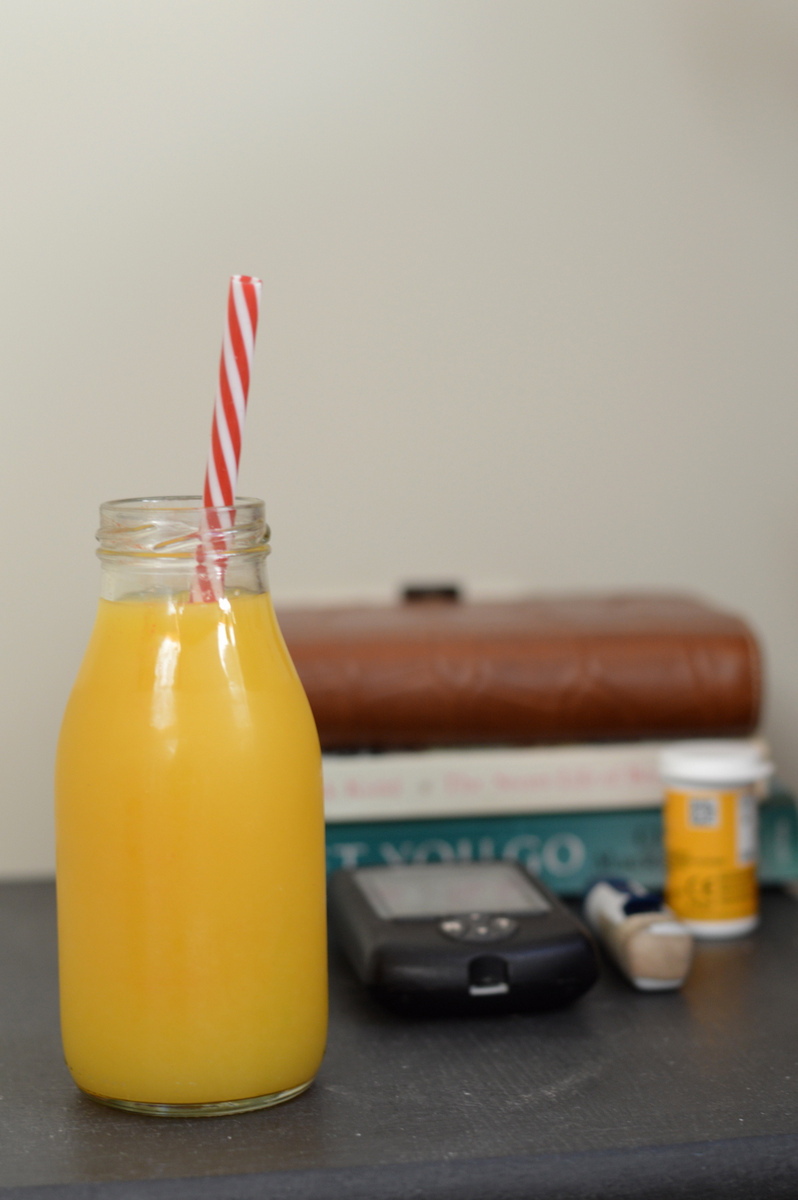
Finally I moved schools again, this time to a drama school. Theatre and art were my two true passions and this school gave its students every opportunity to flourish in these areas. There were also boys there, a foreign species given I had been at a girls school since the age of 7-16! I was put in an all girls house and made some wonderful life long friends. I absolutely adored this school and I suppose my body started to completely relax, I lost some weight and started to embrace who I was a bit more. Only 12 months later did I start showing the signs and symptoms for T1d.
Since then my control has been up and down, the first two years were probably the worst. I was meant to go straight to Edinburgh University to read Fine Art but I just couldn’t face it so soon after being diagnosed. I wanted to be at home near my parents and so I decided to take it as a year out and work. I worked hard and made a small group of friends in the area, we would go out and I would eat and drink what I wanted. My insulin routine was flexible so I could technically eat / drink to that extent but this just ended up with me having constant hi’s and lo’s.
I travelled to Australia and East Asia with my best friend Amy for the second half of the year and again I just ignored my diabetes. I still injected but I wasn’t sensible and looking back at this period of my life I wish I could have shaken myself and said “open your EYES”. I wouldn’t tell anyone we met that I had T1 and I would do all I could to be the life and soul, which at the end of my travels saw me in hospital with ketoacidosis and a terrible urinary tract infection. I know I was silly but I was so lost and so lonely as I didn’t have any one who could relate to me and all my friends were off at University having the times of their lives.
I then started at Edinburgh University to study English Language and Literature. I was there for six months, in what turned out to be my wake up call. I had met my husband, Ports only 4 months before I started and was head.over.heels! He lived in London and I was in Edinburgh. I hadn’t told him I was diabetic and the longer time went on the bigger the lie became. I thought if I would tell him then he would be like several other people I had met and think I was some Mars Bar wielding alien, who injected with a 12 inch needle.
It was a Friday night and he had been to the theatre with his parents, I remember so vividly that as soon as he was home I was going to calmly tell him that I was type one diabetic. Anyway, the drama queen in me clearly didn’t want to address something so calmly… no sooner was he home was I in a blubbering state telling him that I had something so terrible to tell him that he would almost certainly leave me…. “are your having quadruplets?…..”, “Worsseeeee” I cried. Ports, always so calm and wonderful, with me all snot and tears held me in his arms and said “Emma, no matter what it is, we will work it out”… I then told him, and as the words (which I had replayed in my mind a thousand times) came out, I realised how insignificant they sounded!…. Ports laughed. Not a mean, vindictive laugh but a “you are CRAZY woman” laugh….. He of course told me that he still loved me and how could I POSSIBLY have not told him sooner.
I ended up leaving Edinburgh after 6 months as I was still all over the place, I moved to London and worked for a further 6 months before starting at a London University and studying English Literature and Theatre Studies. Being so close to Ports and having him nearby was a complete blessing. I still found it very hard to open up to any one and admit that I had type one but Ports was my anchor and we were a team. I held a job throughout my whole time at university and got my degree at the end.
I moved to London and started working in as many jobs as I could do. I was paying rent and earning money. It gave me a great sense of independence, but my diabetes was never my first priority, like it should have been. I started University again and completed an English Literature degree, with a 2:1. I was working 27 hours a week in a shop at the same time and so University for me wasn’t the experience that most people have. It was simply an expensive way to write some essays, knowing that I certainly didn’t enjoy 90% of the literature offered to us and realise that all I wanted was to be with my husband (then boyfriend).
I was headhunted shortly after University and began working for Goldman Sachs, but it wasn’t for me. The long hours, 1.5 hour commute each way, high stress environment, late evenings and early mornings. My blood sugars took the hit, but instead of stopping and talking to my mentor and telling her that I was really struggling, I just ignored them, ran them at what ever they were and kept going. I hid highs and hypos; I was able to inject like Houdini and deal with a hypo whilst in meetings with the most senior of people. I eventually quit and started working in a boutique finance firm where I found my feet. I was there for 6 years and made some incredible friends. It felt like family. I could be honest about my diabetes and I was looked after well. During my whole 6 years I only took 3 sick days, and none of these were for diabetes.
For the first few years in London I had no real routine; I ate out, I socialised and I had a lot of late nights. I thought I managed my diabetes well but looking back I don’t think I did. My HBA1C was usually around the 7.5% mark, and there was never any cause for concern. The endocrinologist and diabetic nurse were happy with this number, they weren’t worried that I had a lot of swings and they weren’t concerned about my low fat, high carb diet, despite me saying that the pasta / bread / rice / oats just didn’t seem to work for me. Each time, I was told that I needed carbs and that they were best for maintaining stable blood sugars- but there was nothing stable about mine! It wasn’t until I finally was introduced to the low-carb diet in 2013 that I realised what feeling in control felt like. Read more about my introduction to low carb and the lifestyle it led to, here.
My father always told me as a child that so long as he had my mother at his side and that my brother and I were happy and healthy he would be a blissfully happy man. That’s exactly how I feel. I cherish my friends for the support they give me, but as I’ve got older and now have a family of my own, I realise wholeheartedly the importance of those closest to you. They will be the ones who look after you in your hour of need and trust me, these past 3 years there have been many moments where support has been needed. Having a good team around you is important too. Since we left London in 2015, I finally found a hospital and a diabetic nurse that I trust and can rely on. I see them at least 2 times a year and am very happy with the care I receive. 99% of care comes from ourselves though (or the parents of children). As T1 diabetics we have to manage our condition, check our blood sugars, administer insulin. Deal with hypo’s and hyper’s. Correct our blood sugars, bolus for food, carb count. Oh, and live life, look after our families, our children and try to balance work, money and everything else. Sometimes I feel a little bit like a robot, with a pump and a cgm, beeping away. But that’s me. I don’t mind being part robot, if it means that I can keep my health and allow my daughter to have her Mummy.
Diabetes (T1, T2 and Gestational) can affect each and every one of us and if it is not well controlled and monitored, it can not only cause debilitating and life long complications but it can also be fatal. Diet of course plays a huge role in blood sugar control as does exercise and I work so hard to try to balance the two, but sometimes it can just be a roller coaster- stress, hormones, sadness, happiness all play their little roles in working against blood sugar control. I suppose it’s one of those diseases that no one thinks will ever impact them, but it can.
In the UK Diabetes costs the NHS £8.8 billion a year 90% of which is spent on Type Two diabetes and 80% of that figure on AVOIDABLE complications. I am no saint, and I am not preaching or telling you how to live your life- as I am certainly imperfect in so many ways. I still eat things I shouldn’t, I probably don’t exercise enough and I worry incessantly, which I am sure, in turn can have its own complications on health.
I wouldn’t wish diabetes (of any type) on any one, it’s a condition that we live with on a daily, hourly basis and affects a lot of my choices, my mood, my weight etc. However, through eating a low carb diet has helped me minimise the incessant highs that came from high carb foods, over compensating with insulin, hitting a low, then bouncing back up. I have heard people say “Is Emma still on that stupid diet” (funnily enough never to my face), and the answer is yes she is….ignorance is bliss for the majority of people and for those who have never suffered at the hands of an illness but for me it’s not a diet it’s a life style choice. I truly never imagined that I could ever feel well.
Of course, that is not to say that I don’t have highs, but after years of seeing a high as something in the 20s, I now see highs as numbers around 9/10. I manage them well, I correct but don’t over correct. I wait for the number to come back down before eating. I will not eat if I have a high sugar and I am very cautious about that. Low carb isn’t a cure but it is a way of effectively helping to manage my T1D. It allows me to take much less insulin (basal and bolus), sometimes even none at all for certain meals (bolus). I don’t have the insulin resistance that I used to have before.
After years of living with T1D I had forgotten what feeling well felt like. I don’t starve myself, I eat proper meals, in fact I eat more now then when I was eating a diet high in carbohydrates and processed foods. I don’t smoke, I rarely drink and 4 years on and I still take 60% less insulin than I took before I started low carb. I have had a baby, something I was told would never be possible due to my PCOS and T1D, but I did it. My body did it. I maintained full control of my diabetes throughout, and even during my C Section. I healed well from it despite every negative comment and every “horror story”. I finally got back to my pre pregnancy weight and have, in the last 3 months (November 2018) lost another 2 stone. Through high intensity workouts and LCHF.
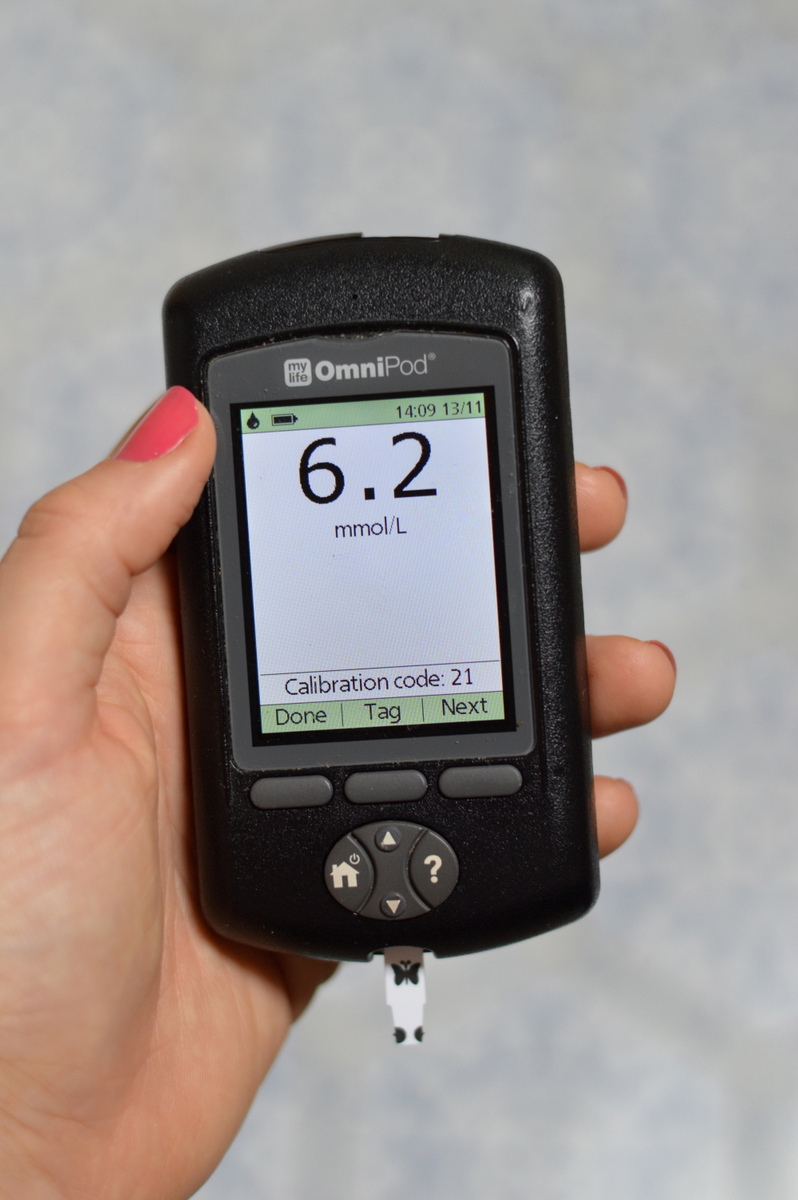
Facts about T1D (and me)
- Type one diabetics are insulin dependent, the pancreas produces no insulin (** ), this means they must have insulin on a daily basis in order to stay alive. This can be in the form of injections or an insulin pump
- You can’t “catch” diabetes off me, so it’s ok, you can come a little closer
- Type one diabetes accounts for about 10% of all those with Diabetes (the majority are type two)
- Type one diabetes is not the same as Type two diabetes. Type one diabetes is an auto immune disease which attacks the pancreas of any insulin, it is controlled by self-administered insulin. Type two diabetes is a metabolic disorder characterised by high blood sugars in the context of insulin resistance. It can be controlled by diet/ exercise and / or tablets and in the most serious cases you will also have to inject
- I don’t inject with a four-inch needle or eat a diet of Mars Bars and Iron Brew (yes, that was a question I have been asked before)
- I have to prick my finger 4-6 times a day and some times more to draw blood to check my blood sugar. If I see a high number I have to correct it by injecting some insulin, if I see a low number I must have something sugary (a fast acting sugar like orange juice, medjool dates or dextrose), if I see a good number then life is great!
- I have to think about every single food and drink I put in my mouth. What ever my blood sugar is I have to calculate the carb ratio and then adjust my insulin accordingly. For someone who struggled with Math at school I am now a pro when it comes to carb counting!
- My handbag is very heavy!
- Eating a low carb diet for me is the easiest way I can control my diabetes and makes me feel at my best. Exercise also helps me to keep my sugars in good control.
- The insulin pump I am on is an Omnipod. It’s a wireless device that gives me a constant feed of insulin. I can then give my self extra (bolus) if and when needed, depending on what I am eating. It is the best thing I have ever used and as most girls question where their handbag is before leaving the house, the first thing I think about is where my Omnipod controller (blood sugar reader etc) is. You can wear the pod on your arms, stomach, thighs or bottom so it is very discreet- which as a 28 yr old girl I value highly. Very occasionally it does malfunction and when it does this can be a nightmare (sometimes an alarm goes off and other times it doesn’t which can lead to ketoacidosis pretty quickly if I am asleep and don’t realise). However, most of the times it is like having a working pancreas and I wear it with pride.
- Type one is most commonly diagnosed in early childhood, however, you can be diagnosed at any age (most recently Theresa May has been diagnosed at the age of 58!)
- I do sometimes wake up at 2am sometimes shaking, sweating with a bad hypo but I still get up at 7am with my daughter, it’s just part and parcel of it all, and just something we all have to get on with.
- My husband will get up with me every time I have a hypo and will stay up with me until I come back around to a normal level. I couldn’t do life with out him
- I wear a CGM called a Dexcom G6. I got it in April 2018 and so far it has been a life saver and many my hypo unawareness more manageable.
- There is no miracle way to control or live with your diabetes. Every single person deals with it the best way that works for them and what might work for one person, will not work for another. For example, I cannot touch oats! They send my blood sugar on a crazy high, it can take twice my daily dose of insulin to compensate for one bowl of porridge!
Diabetes symptoms
The symptoms of diabetes (type one or two or gestational) occur because the lack of insulin means that glucose stays in the blood and isn’t used as fuel for energy.
Your body tries to reduce blood glucose levels by getting rid of the excess glucose in your urine.
Typical symptoms include:
-
feeling very thirsty
-
passing urine more often than usual, particularly at night
-
feeling very tired
-
weight loss and loss of muscle bulk
The symptoms of type 1 diabetes usually develop very quickly in young people (over a few days or weeks). In adults, the symptoms often take longer to develop (a few months).
Read more about the symptoms of type 1 diabetes.
Complications
The last thing any type one diabetic wants to talk about / think about or hear about are the complications of diabetes. I remember very vividly a girl from school telling me quite vindictively how her grandfather had diabetes (type two, but of course she didn’t differentiate) and that he didn’t have any feet and was blind… This scared me beyond belief and I remember crying myself to sleep for a long time thinking I would be taking the same path. We are so lucky living in era we do, as the medicine and treatments available to us is so far advanced. Flip back thirty years and there were no blood sugar meters and insulin had to be drawn out of a vial. If we look after out bodies the best we can then we can reduce the likelihood of complications. There are always going to be complications to everything in life, but so long as you are aware of them and do your best to look after yourself then what happens happens.
I had a scare back in 2017 with my eyes. I was told that there were some changes in the back of my eyes, signs that aren’t imminently dangerous but they do signify diabetes and, I suppose a level of damage. This, as you can imagine had a huge effect on me, some one who takes their health so seriously and over thinks everything. However, thankfully on my check up earlier this year the micro aneurisms that were in the left eye had reduced to just one. I don’t want to dwell on it too much, as I can assure you I have cried far too many tears and even though I have been given the “all clear” and “nothing to worry about” about 100 times, there is always the impending “what if”. But, if we lived by “what if’s” we wouldn’t do anything and life is for living, so I’ve buried those thoughts and am holding my head up high.
There is so much ignorance in this world surrounding Diabetes in general and I spent far too many years hiding from the fact that I had it. The media doesn’t help with it’s constant headlines which make no reference to which “type” of diabetes they are referring to. Having type one diabetes has ultimately led me to the job I now have. I am a published author and spend many hours talking and supporting those struggling with diabetes (all types).
Read my open letter to my type one diabetes here.
Notes:
(**) When you are first diagnosed you can go through a honeymoon period where the pancreas secretes a very small amount of insulin for a little while. During this time you will give yourself less insulin. However, I never experienced this.

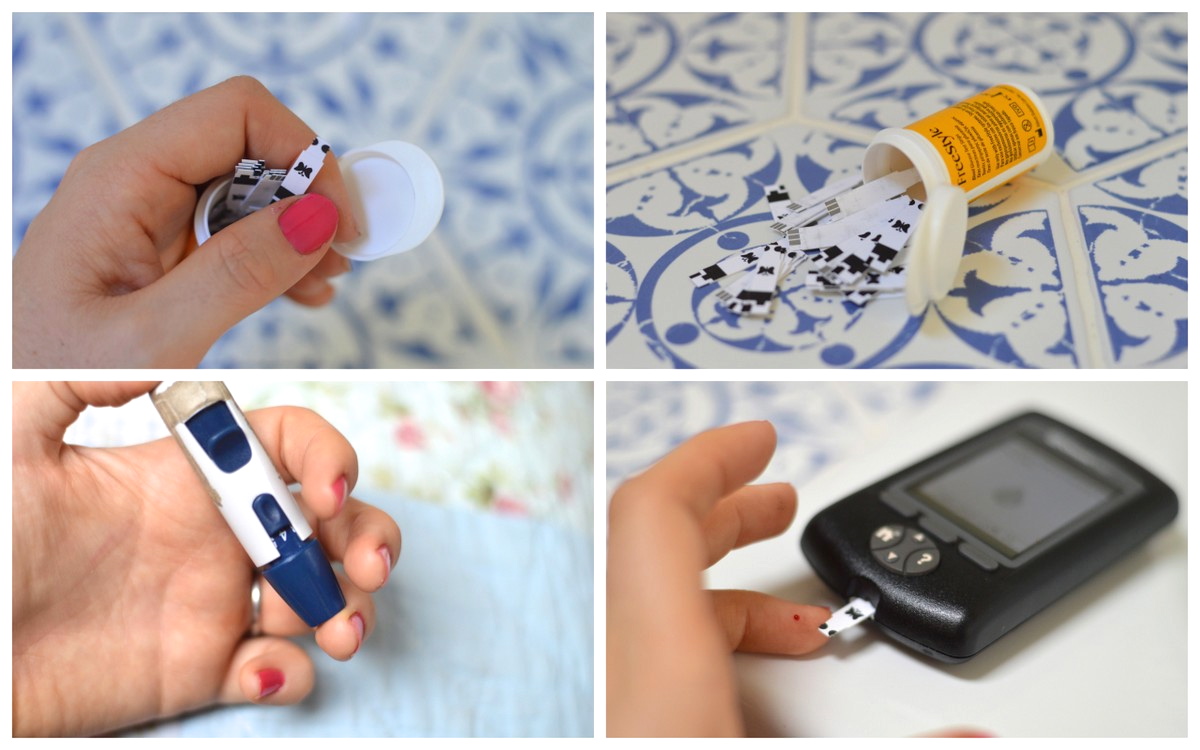
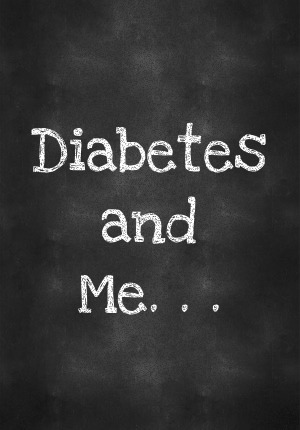
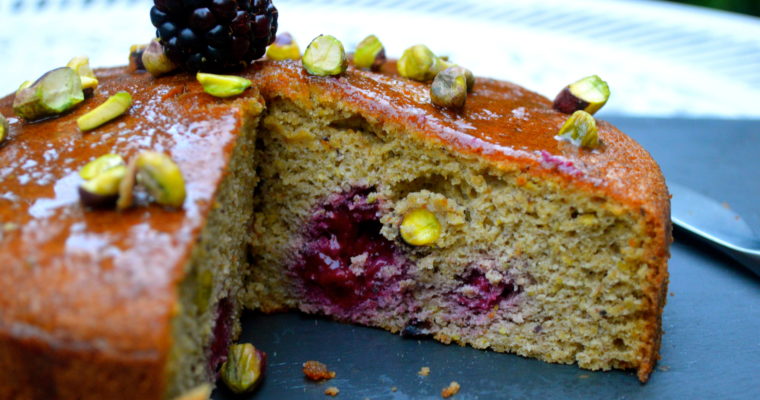
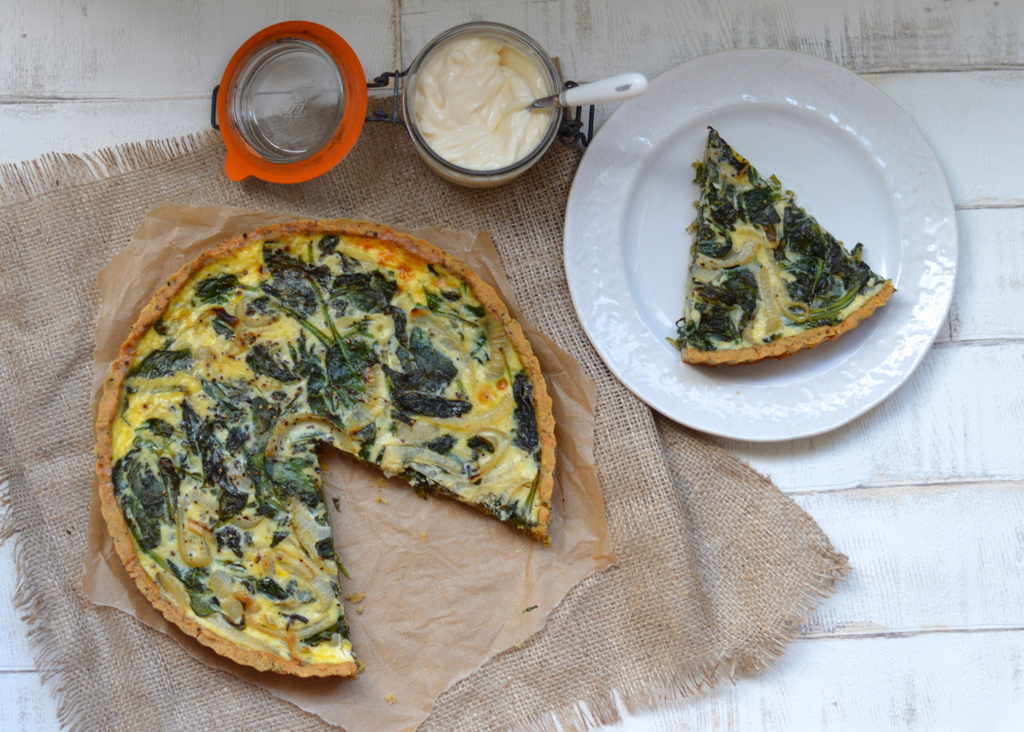






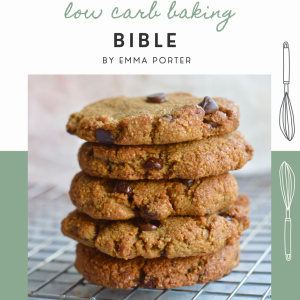
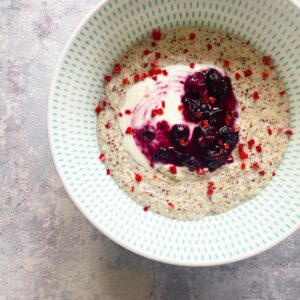

Very informative Emi-you are doing very well coping and managing every day! Best wishes to you from USA your friend, Cheryl.
Thank you Cheryl. Best wishes, health and happiness X X
Hello Emma! Thank you so much for sharing your story with such honesty and bravery. To be so open is a sign of great strength…no doubt a character trait you have developed over these past 10 years. I have a friend here (Australia) who was diagnosed with type 1D at a later age. She writes a blog, yogafordiabetesblog.com. You may find it interesting.
Wishing you all the best — and thank you for great paleo recipes and ideas!!
Dear Sue, Thank you so much for your kind words, they put a huge smile on my face. I will certainly look with interest at your friends blog! Do keep in touch, Emma x x
Thank you so much for this information on diabetes. I learned a lot about diabetes and appreciated reading your experience and story. Wishing you the best!
Thank you so much for your kind comment! Emma x x
Thank you for sharing your story. My grandmother had type 2 diabetes and my uncle has type 1, so it’s always in the back of my mind that I need to be careful what I eat and how active I am. What you have shared really affirms that! And it’s very interesting to hear how the paleo diet has helped you with your diabetes and sort of shocking about oats having such an affect on your blood sugar level, especially as I eat oats every morning for breakfast!
Dear Corin, thank you so much for commenting. It’s certainly one of those things that a lot of people think will never affect them. You already seem very clued up on it all and aware so I am sure you will be absolutely fine! I know some diabetics who aren’t affected by oats, but for me they just don’t work! Lots of trial and error and a constant learning curve! Thank you again, Emma x x
Hey great article!!.. check out This diabetic sees things differently on Facebook .. whole host of homeopathic/ nutritional / medically backed science and info you can use to heal yourself!